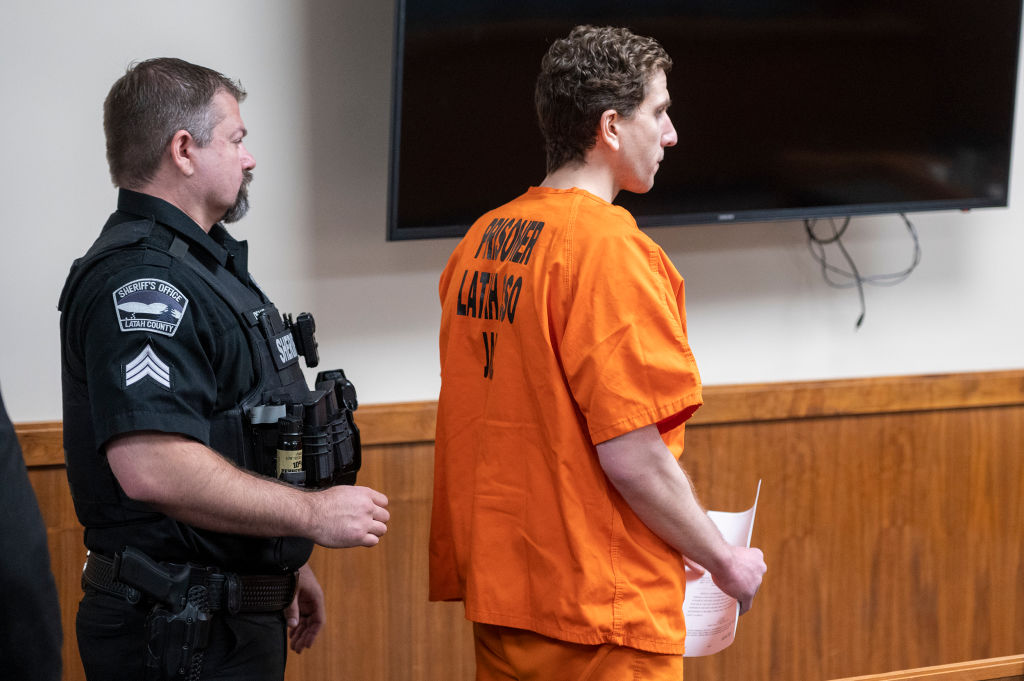Accused killer Bryan Kohberger could face the death penalty, and a new mode of execution for Idaho, if he is convicted of the murders of four college students last year in Moscow, Idaho.
Kohberger has been charged with killing University of Idaho students Ethan Chapin, Madison Mogen, Xana Kernodle, and Kaylee Goncalves in November.
The Latah County Prosecutor’s Office notified Kohberger’s public defender Anne Taylor that it would seek the death penalty in his trial that begins in October, according to KMSP-TV.
The filing gave five ”aggravating circumstances” in Idaho law for seeking the death penalty, including that multiple murders were committed and that the killings were “especially heinous, atrocious or cruel, manifesting exceptional depravity.”
The filing said that the killings showed “utter disregard for human life” and that the killings took place in commission of another crime while the suspect “acted with reckless indifference to human life.”
In its final citation from Idaho law, the prosecutors cited a section saying the defendant “has exhibited a propensity to commit murder which will probably constitute a continuing threat to society.”
In conclusion, noting that no mitigating factor had been found, prosecutors wrote, “Consequently, considering all evidence currently known to the State, the State is compelled to file this notice of intent to seek the death penalty.”
The family of Kaylee Goncalves offered a statement in reply to the filing.
“The Goncalves family is grateful that the prosecutor’s office is pursuing the death penalty. There is no one more deserving than the defendant in this case. We continue to pray for all the victims’ families and appreciate all the support we have received,” the statement read, according to the Idaho Statesman.
If Kohberger is convicted, he could be executed by a firing squad under a new Idaho law.
In April, Gov. Brad Little signed a law that takes effect July 1 making the firing squad an option for execution, according to the Idaho Statesman.
In signing the bill to make a firing squad an option if lethal injection drugs cannot be obtained, Little wrote, “[I]t is important to point out that fulfilling justice can and must be done by minimizing stress on corrections personnel.”
“For the people on death row, a jury convicted them of their crimes, and they were lawfully sentenced to death. It is the responsibility of the state of Idaho to follow the law and ensure that lawful criminal sentences are carried out,” he wrote.
Republican Idaho state Rep. Bruce Skaug said the state needed an option for when lethal injection drugs were not available.
“Lethal injection is the first choice. That’s what I’m pushing, and, if we can’t do it, then firing squad,” Skaug said, adding a firing squad is “certain, and it is quick. And most things I’ve read, it’s 10 seconds of extreme pain, and then you’re done.”
Idaho Attorney General Raul Labrador said that when the law takes effect, “the de facto moratorium on the death penalty” is over.
“The firing squad will not be the primary or preferred method of execution, it will be a fallback option that will be used only if lethal injection is not available,” he said.
Idaho’s new law is similar to laws in Mississippi, Utah and Oklahoma, according to CNN.
This article appeared originally on The Western Journal.

























 Continue with Google
Continue with Google